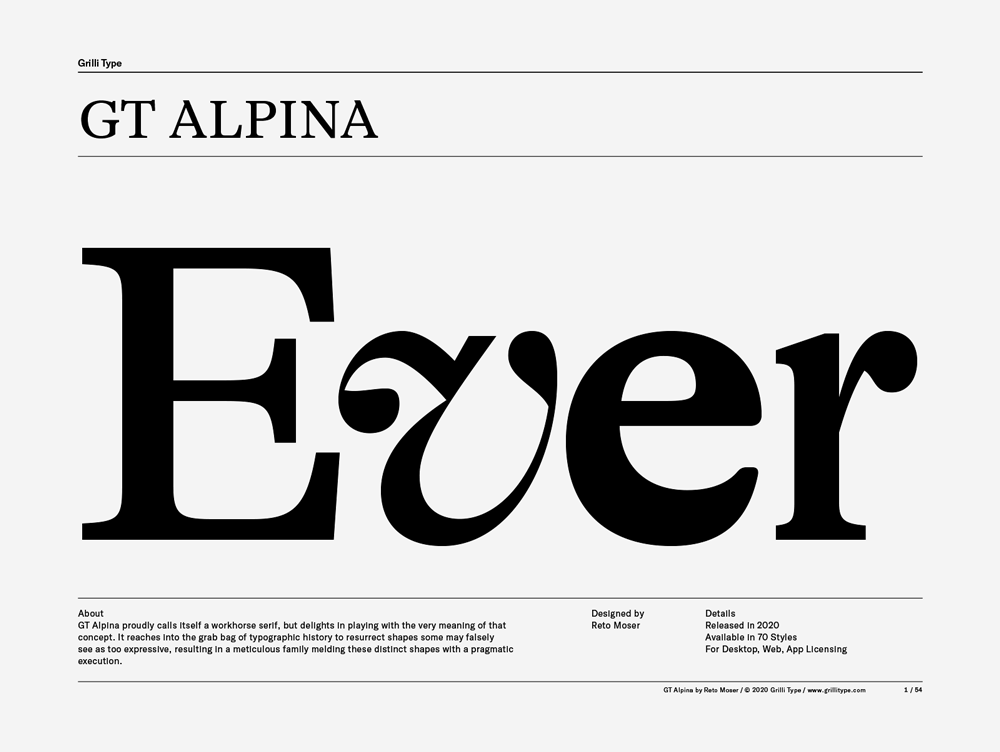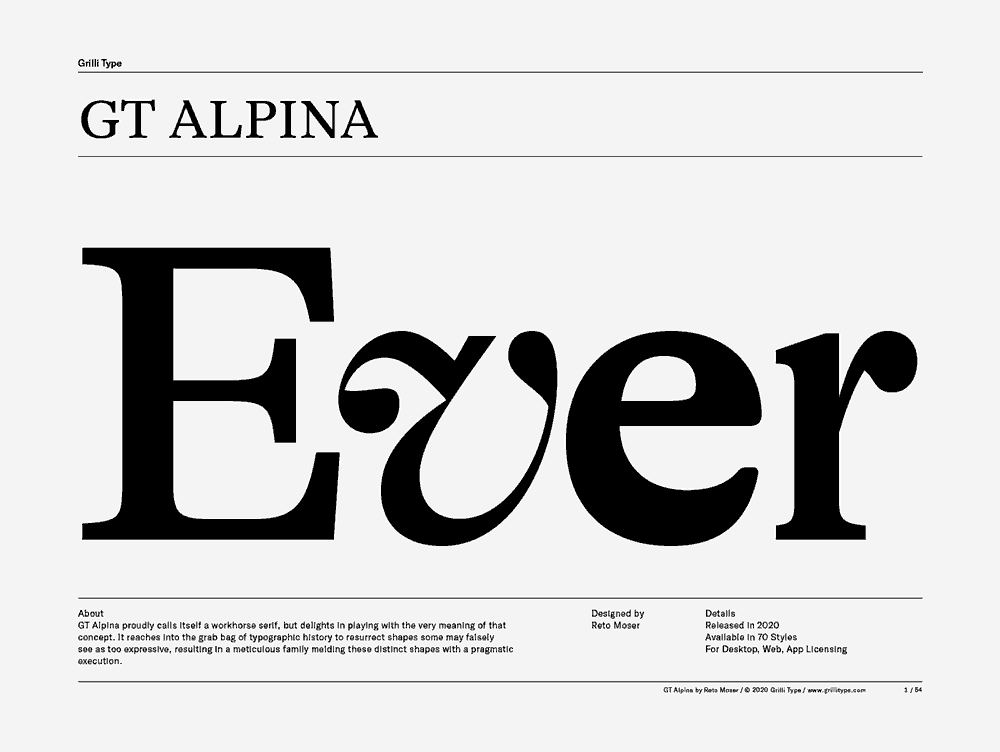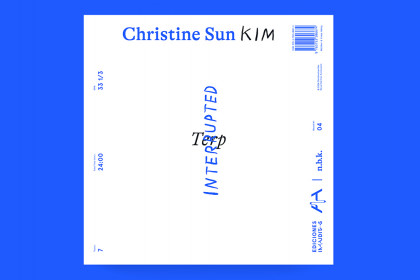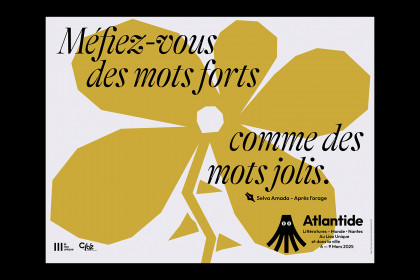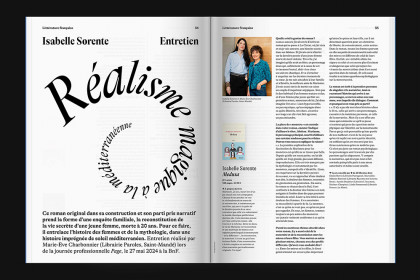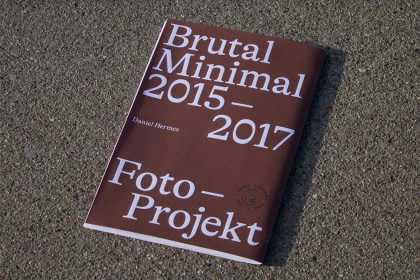GT Alpina
Family overview
- Condensed
- Thin Italic
- Light Italic
- Regular Italic
- Medium Italic
- Bold Italic
- Standard
- Thin Italic
- Light Italic
- Regular Italic
- Medium Italic
- Bold Italic
- Extended
- Thin Italic
- Light Italic
- Regular Italic
- Medium Italic
- Bold Italic
- Fine Condensed
- Thin Italic
- Light Italic
- Regular Italic
- Medium Italic
- Bold Italic
- Fine Standard
- Thin Italic
- Light Italic
- Regular Italic
- Medium Italic
- Bold Italic
- Fine Extended
- Thin Italic
- Light Italic
- Regular Italic
- Medium Italic
- Bold Italic
- Typewriter
- Thin Italic
- Light Italic
- Regular Italic
- Medium Italic
- Bold Italic
Subfamilies
- Standard ThinIn the middle of the great curve of the Himalayan mountains lie the 8,000 m (26,000 ft) peaks of Dhaulagiri and Annapurna in Nepal, separated by the Kali Gandaki Gorge.
- Standard Thin ItalicIn 1811, the brothers Johann Rudolf (1768–1825) and Hieronymus Meyer, sons of Johann Rudolf Meyer (1739–1813), first reached the Valais by way of the Grimsel
- Standard LightHe won both the downhill and the slalom races at the 1927 Student Olympics in Italy.
- Standard Light ItalicHe won both the downhill and the slalom races at the 1927 Student Olympics in Italy.
- Standard RegularSouth from Bédoin: 1,617 m (5,305 ft) over 21.8 km (13.5 mi). This is regarded as the most difficult ascent. The road to the summit has an average gradient of 7.43%.
- Standard Regular ItalicThe most notable feature of the Eiger is its 1,800-metre-high north face of rock and ice, named Eiger-Nordwand, which is the biggest north face in the Alps.
- Standard MediumSouth from Bédoin: 1,617 m (5,305 ft) over 21.8 km (13.5 mi). This is regarded as the most difficult ascent. The road to the summit has an average gradient of 7.43%.
- Standard Medium ItalicThe Swiss Alpine Club was founded in 1863 in Olten and it is now composed of 111 sections with 110,000 members.
- Standard BoldThe Alps are a crescent shaped geographic feature of central Europe that ranges in an 800 km arc from east to west and is 200 km in width
- Standard Bold ItalicIn its most important stretch, over a length of four kilometers it climbs a height of 300 meters in 24 hairpin bends.
- Settings
Typeface information
GT Alpina proudly calls itself a workhorse serif, but delights in playing with the very meaning of that concept. It reaches into the grab bag of typographic history to resurrect shapes some may falsely see as too expressive, resulting in a meticulous family melding these distinct shapes with a pragmatic execution.
Typeface features
OpenType features enable smart typography. You can use these features in most Desktop applications, on the web, and in your mobile apps. Each typeface contains different features. Below are the most important features included in GT Alpina’s fonts:
- SS01
- Alternate J
Jungfrau
- SS02
- Alternate ?
¿Ascensión?
- SS03
- Alternate &
Piz & Palü
- SS04
- Alternate @
M@terhorn
- ONUM
- Oldstyle Figures
0123456789
- SMCP
- Small Caps
Greina Pass
Typeface Minisite
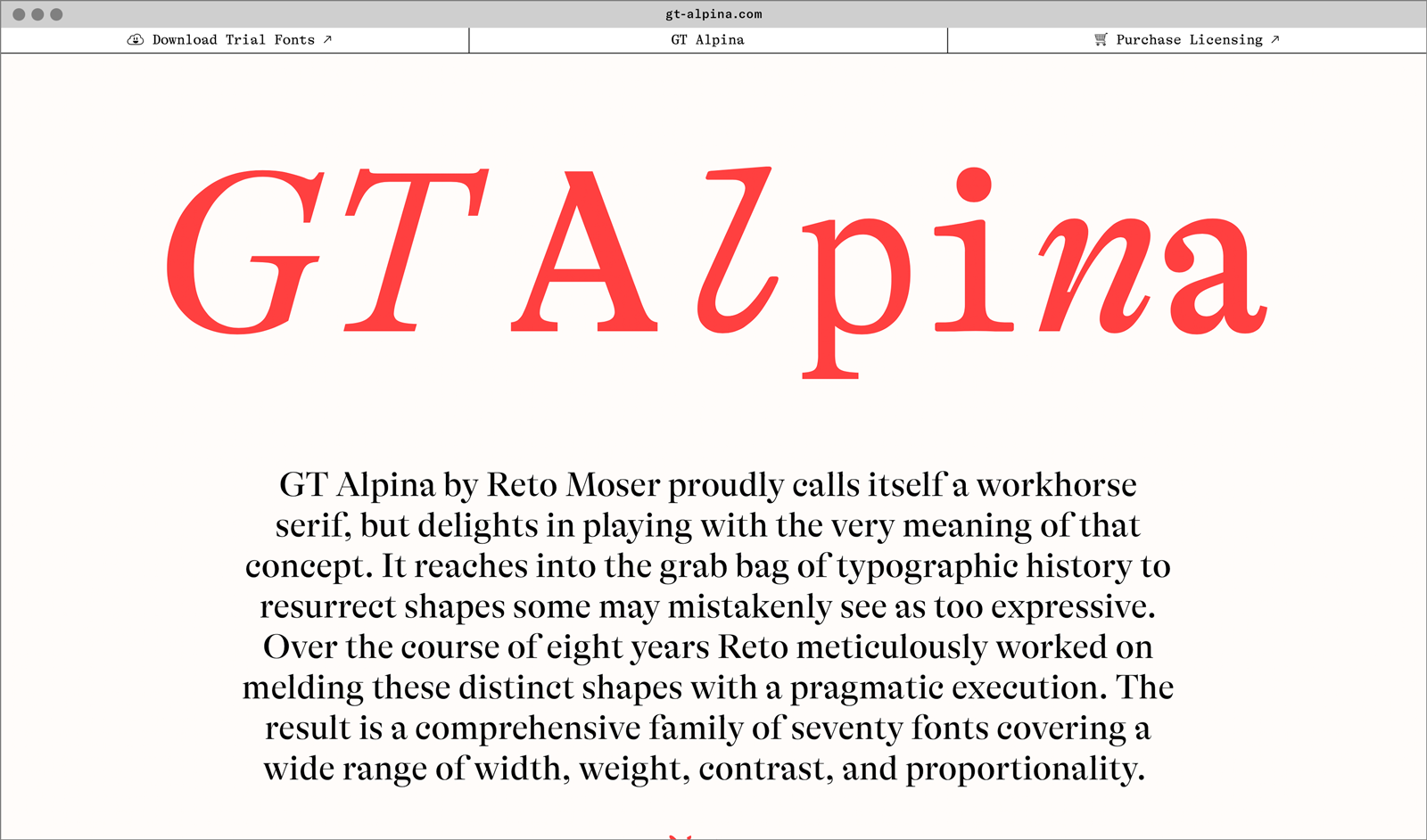
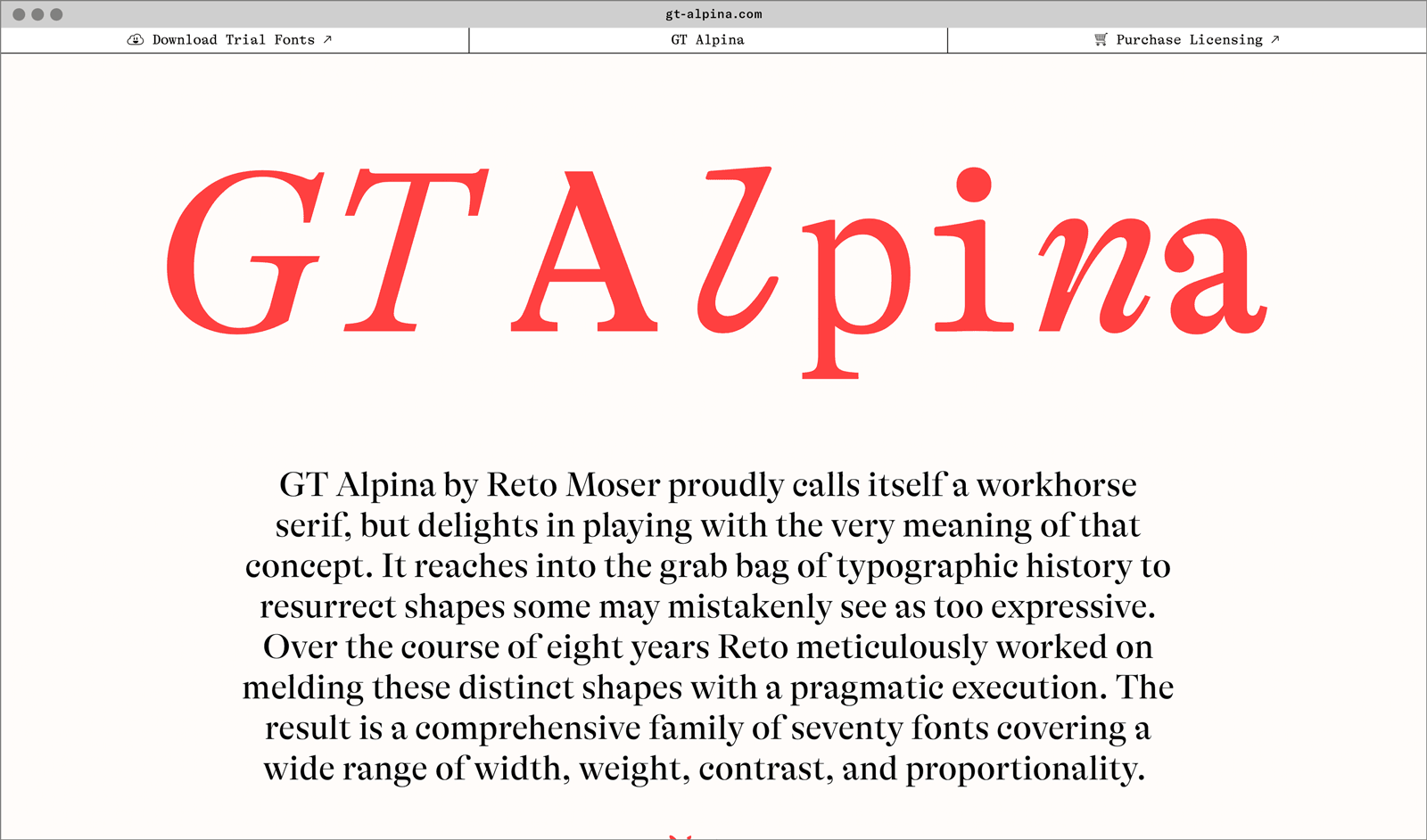
- Visit the GT Alpina minisite to discover more about the typeface family’s history and design concept.
GT Alpina in use
